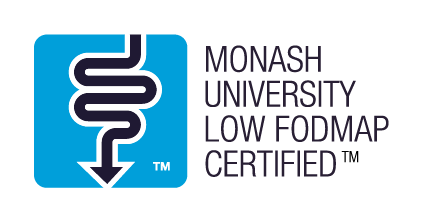
So dieting hasn’t worked out and it’s time to try something new. Don’t be disheartened. In our view, it’s better to have loved and lost than never to have loved at all. Whether it was high-protein low-carb, trying out vegetarian, vegan or paleo (or anything else on the never ending list of go-to diets) you still made a conscious choice to try and improve your health and wellbeing. Kudos to you.
The problem for a lot of people when they diet is said diet is not sustainable. We don’t blame you, who can forgo some hot chips at the footy or a few nibbles at a birthday party? In fact, various sources indicate while you might lose weight in the early stages of a diet, as many as 95% of people will regain all the weight they lost within two to five years. We hear you, there must be a better approach?
IS DIETING THE SAME FOR EVERYONE?
Weight loss or weight management look very different for everyone. That’s because our body type, genetics, metabolism and a range of other factors will contribute to what diet or lifestyle is best for us. If that’s the case, maybe we should listen more to our bodies to guide our eating habits. Enter intuitive eating.
WHAT IS INTUITIVE EATING?
Intuitive eating was coined in the 90s by dietitians Evelyn Tribole and Elyse Resch. The practice is based on the notion that a truly peaceful relationship with food is about self-care, not self-control. Intuitive eating suggests we should use internal cues - as opposed to external rules - to guide what, when and how much we eat.
Intuitive eating is NOT a weight-loss diet. It considers your mental and physical health holistically, paving the way for a healthier relationship with food. Ditching diet culture, thinking of foods as ‘good’ or ‘bad’ and moving away from diets that promote restriction and deprivation gives you the opportunity to get in touch with how you feel and to become more satisfied with what you’re eating. This could assist in maintaining a long-term, stable and healthy lifestyle as opposed to the yo-yo effect of jumping on and off diet fads.
So is it time for you to jump off the diet roller coaster? Well, please DON’T keep your hands, arms, and legs inside the vehicle at all times (do as you feel, it’s intuitive!) as we explore the ten core principles of intuitive eating.
1. Reject the diet mentality
Cue the infomercial offering you a way to lose weight ‘quickly, easily, and permanently’. You can’t rush a long-lasting, balanced lifestyle. Stop being let down by diet culture that sees you end up where you were (or worse than) when you started. You’re not failing the diet, the diet is failing you. Discover intuitive eating and throw away the diet books.
2. Honour your hunger
Ever gone hungry through the day, feeling in control to later end up making a few too many trips to the pantry in the evening? We’ve all been there, and we all know it’s not a good habit. Give your body the energy it needs to help you power through the day. You’ll find honoring your hunger will help keep you feeling satisfied and improve your relationship with food.
3. Make peace with food
It’s not you, it’s me. Okay, it’s time we stopped treating food like we did our first high-school relationship (sorry to pull on the heart strings). It’s time to find peace with food, call a truce and give yourself permission to eat. It’s better to allow yourself cravings in moderation, rather than them building up to result in a binge that leaves you feeling overwhelming guilt.
4. Challenge the food police
You have the right to speak up and challenge the food police. Reject the thoughts in your head that tell you a day of minimal calories is ‘good’ and a couple of pieces of chocolate after dinner is ‘bad’. Diet culture has fuelled a mindset that leaves us feeling like we can never win, no matter how ‘good’ or ‘bad’ we eat. To truly embrace intuitive eating, say goodbye to the food police and improve your relationship with what we eat.
5. Discover the satisfaction factor
One of life's simplest pleasures is the satisfaction that can be found in the eating experience. Rather than restricting what we’d like to eat, if we eat what we want in an inviting environment, we’re far more likely to feel content and satisfied. By frequently engaging in an experience like this, we’re more likely to eat the right amount of food to feel satisfied, rather than hungry or overly full.
6. Feel your fullness
Contrary to some of your family members' beliefs, eating is in fact NOT a race. When you eat, it's important to take pauses, recognise how you’re eating, what you’re eating and what our current hunger level is. Learn to recognise how you’re approaching fullness and learn to love the feeling of being comfortably full.
7. Handle your emotions with kindness
Throughout life, most of us will at some stage experience anxiety, loneliness, boredom and anger. Food won’t fix any of these feelings. While a pint of ice-cream may seem like the perfect cure for a rough day, emotional eating will make us feel worse in the long run. Distracting from our emotions with eating simply means we’ll have to deal with the emotion later. It’s important to find ways to comfort, nurture, distract and resolve issues without food.
8. Respect your body
Genetically, we’re all different. You can’t compare yourself with others when your body types are completely different. It’s a hard truth in life, but so many of us are obsessed with what we don’t have, rather than what we do have. A person who appears ‘skinny’ may wish they had significantly more muscle, while someone who appears ‘muscly’ may wish they appeared slimmer. Learn to respect your body so you can feel more positive about who you are.
9. Movement - feel the difference
You booked in a 5 am spin class with the best of intentions, but when your alarm rudely wakes you at 4:30 am you may be hitting snooze and deciding to leave the workout for another day. Rather than counting calories and focusing on a caloric deficit, focus on how it feels to move your body. If you know working out makes you feel energised, you’re far more likely to engage in regular activity.
10. Honour your health - gentle nutrition
You don’t have to eat perfectly to be healthy, especially if eating perfectly means you struggle to maintain healthy habits and find yourself binging. You need to make choices that are good for both your health…and your taste buds! One snack, meal or day of eating won’t impact you significantly. Consistency is what matters. The ethos is about progress, not perfection.
CAN INTUITIVE EATING BE CONVENIENT?
Yes! Intuitive eating is all about listening to your body to determine what, when and how much you eat. Ready-made meals, soups, snacks and juices are great to grab, heat (if required) and go. You can be digging into a fresh, delicious, nutritious meal in minutes!
Time to stock up on some farm-fresh, preservative-free meals? Shop the full Dineamic range here.









